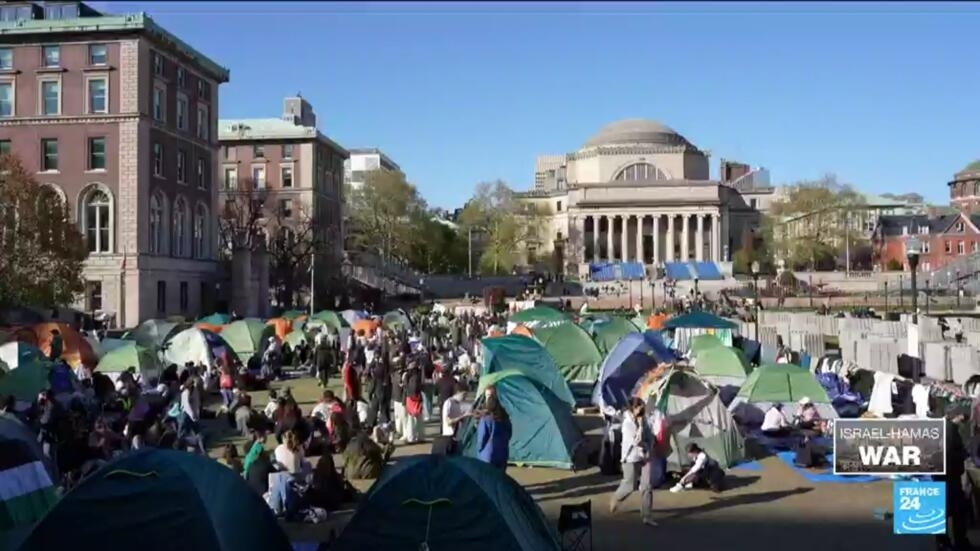From Columbia University to the University of Texas at Austin, demonstrations have been met with police responses amid accusations of antisemitism.

Police this week arrested hundreds of pro-Palestinian student demonstrators on college campuses across the United States as university administrators struggle to find a balance between allowing free speech and maintaining a safe environment for all students and faculty.
Among students’ demands, they have urged their universities to stop investing in companies that provide support to Israel and to cut ties with Israeli academic institutions as well as called for a cease-fire in Gaza and the creation of an independent Palestinian state. Although reports suggest that the protests have been largely nonviolent, some students and faculty—including many who are Jewish—have reported feeling intimidated or unsafe because of the demonstrations and even being targeted in antisemitic attacks.
Photos and videos have circulated on social media of protesters in some instances expressing antisemitic slogans and support for Hamas’s deadly assault on Israel on Oct. 7, 2023. Some activist groups involved in organizing the protests have made public statements denying antisemitism and saying their criticism is reserved for the Israeli state and its supporters.
The protests gained national attention last Wednesday at Columbia University in New York City after students formed an encampment on campus to demand that the school stop its “continued financial investment in corporations that profit from Israeli apartheid, genocide, and military occupation of Palestine,” including companies involved in weapons manufacturing.
The protests came the same day that Columbia University President Minouche Shafik testified before a U.S. House of Representatives committee about how the school responds to charges of antisemitism on campus. Shafik was the latest university president to face criticism for allegedly failing to combat antisemitism, with House Republicans interrogating the presidents of Harvard University, the University of Pennsylvania, and the Massachusetts Institute of Technology on their policies late last year. Harvard and Penn’s presidents have since resigned after evading questions about whether students should be punished for calling for the genocide of Jews.
Seemingly in recognition of the spotlight on her, Shafik requested that New York police disband the school’s pro-Palestinian encampment, saying students were trespassing and threatening the university’s security. More than 100 people were arrested. The Columbia Law School Human Rights Institute condemned the arrests, and the school’s newspaper, the Columbia Daily Spectator, compared the incident to crackdowns on the university’s anti-war protesters in 1968.
Since then, solidarity protests have arisen at universities across the country, and many have been met with similar police responses that have seen hundreds of students and faculty arrested. Some schools have canceled classes or moved them online.
The tumult has also reignited an ongoing national conversation about free speech—and its limits—on university campuses and beyond that has seen high-profile politicians weigh in. Democratic Rep. Ilhan Omar, whose daughter was arrested during last Thursday’s demonstration at Columbia, has expressed support for the protesters. On Wednesday, U.S. House Speaker Mike Johnson and several of his fellow Republican lawmakers held a press conference at Columbia calling on the school’s president, Shafik, to resign “if she cannot immediately bring order to this chaos.” He was met with boos from nearby protesters.
U.S. President Joe Biden told reporters on Monday that he condemns the “antisemitic protests” but added, “I also condemn those who don’t understand what’s going on with the Palestinians.” White House Press Secretary Karine Jean-Pierre said on Wednesday that Biden believes in the importance of free speech, debate, and nondiscrimination on college campuses, adding that “students should feel safe.”
Courtesy: Foreign Policy




COMMENTS